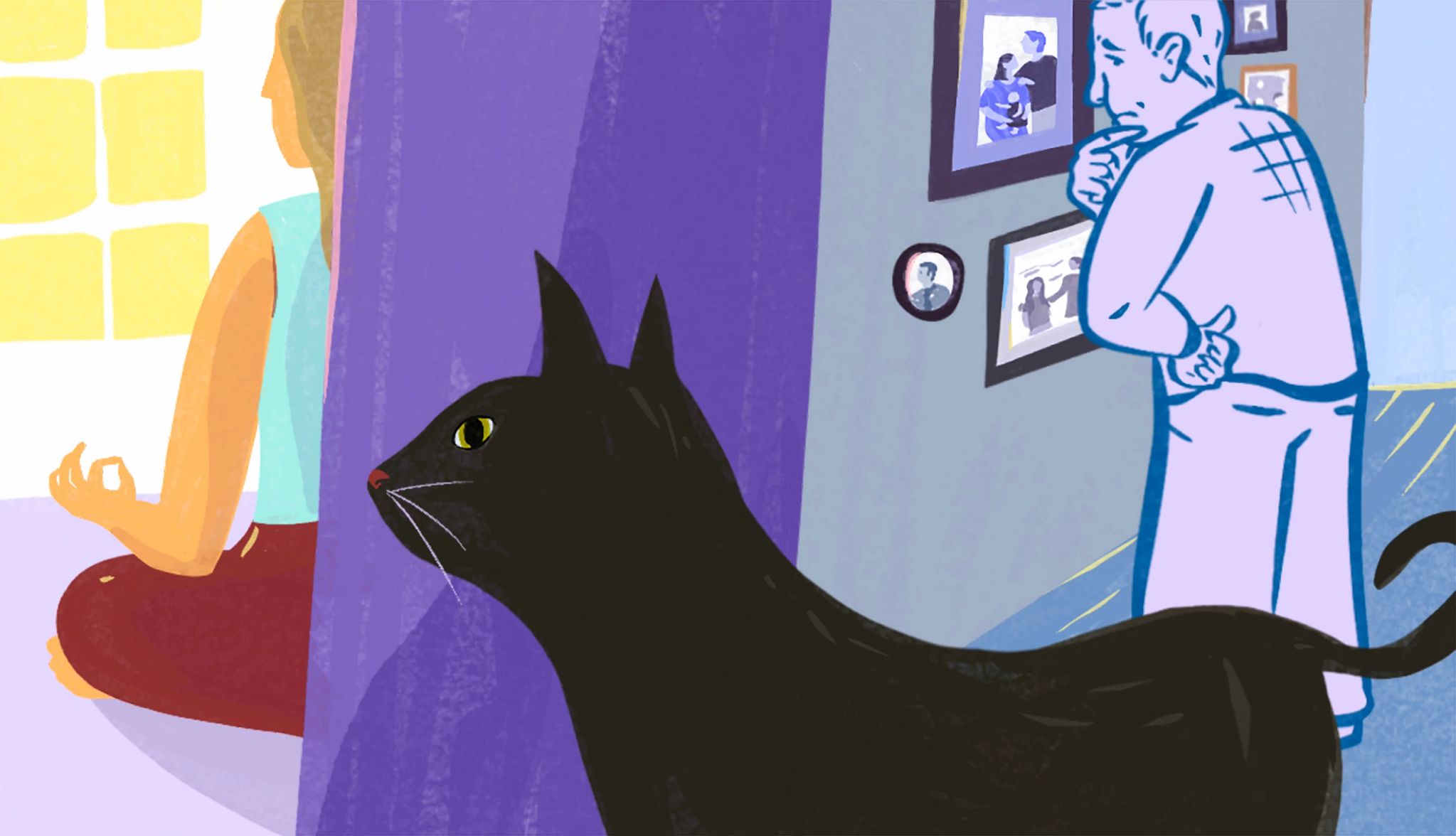AARP Hearing Center


“Alzheimer’s,” the neurologist said, like he was giving us a weather report. No eye contact but a clinical rundown of infusions B could get and possible side effects: brain swelling, brain bleeds, death.
No expression of regret. No acknowledgment of the gut punch we had just taken. Maybe that was good — skating across the surface of the news helped us get out of his office upright. He said we could think about the infusions — maybe they’d buy us six months. When I asked, beyond that, what would be next, he said, “We monitor.”
We? No. I monitor.
I am the watcher, the daily eyewitness.
And this is what I’ve learned about Alzheimer’s disease: Besides the working memory, it affects decision-making, information processing, computation, spatial awareness, coordination and personality. I’ve learned that most people who are afflicted struggle with anxiety and agitation, some with depression, and others become combative. Many have delusions and hallucinations.
Alzheimer’s is a shape-shifter. Today, B talks lucidly about friends of ours who will come to supper and cogently about a book he has been writing; yesterday, he couldn’t remember his granddaughter’s name and got confused about whether his daughter was his niece.
Join Our Fight for Caregivers
Here’s what you can do to support family caregivers:
- Sign up to become part of AARP’s online advocacy network and urge lawmakers to pass legislation to save caregivers time and money.
- Find out more about how we’re fighting for you every day in Congress and across the country.
- AARP is your fierce defender on the issues that matter to people age 50-plus. Become a member or renew your membership today.
He’s often bewildered by his own forgetting, and I am bewildered too — by how deeply memory is tied to personhood. Before this, I hadn’t fully understood how memory isn’t just what we carry but who we are. Now I see — it wears us, like skin. And when it begins to fall away, we’re exposed. Vulnerable. Lost. And yet, B’s quirky charm still surfaces, much to my relief.
Alzheimer’s spirals, lurches. It mocks your plans. It shifts the meaningful to the menial: pills, bills, doctor appointments, household chores, reassurances; gentle prompts disguised as normalcy. B declares, “I’m not ga-ga yet!” but later says, “I think I’m losing my marbles.”
He leaves drawers open. Cat treats are in the linen closet. Mouthwash sits next to the bleach. Our winter hats have disappeared. He opens the windows and doors, no matter how cold it is.
I never thought of myself as impatient, but the looping questions wear at me.
“What time is the doctor’s appointment?”
“Do we have a doctor’s appointment?”




































































More From AARP
Coping with Secondhand Stress as a Caregiver
Learn what is feels like and take steps to safeguard your mental health
Caregiving and Work: Tips for Balance
Explore tips to help caregivers manage work stress
6 Tips for Setting Caregiving Limits
As much as you want to help out with your aging parents, there are times when it just doesn’t work out.